Kettering College PA Students Forever Changed by Work in West Africa
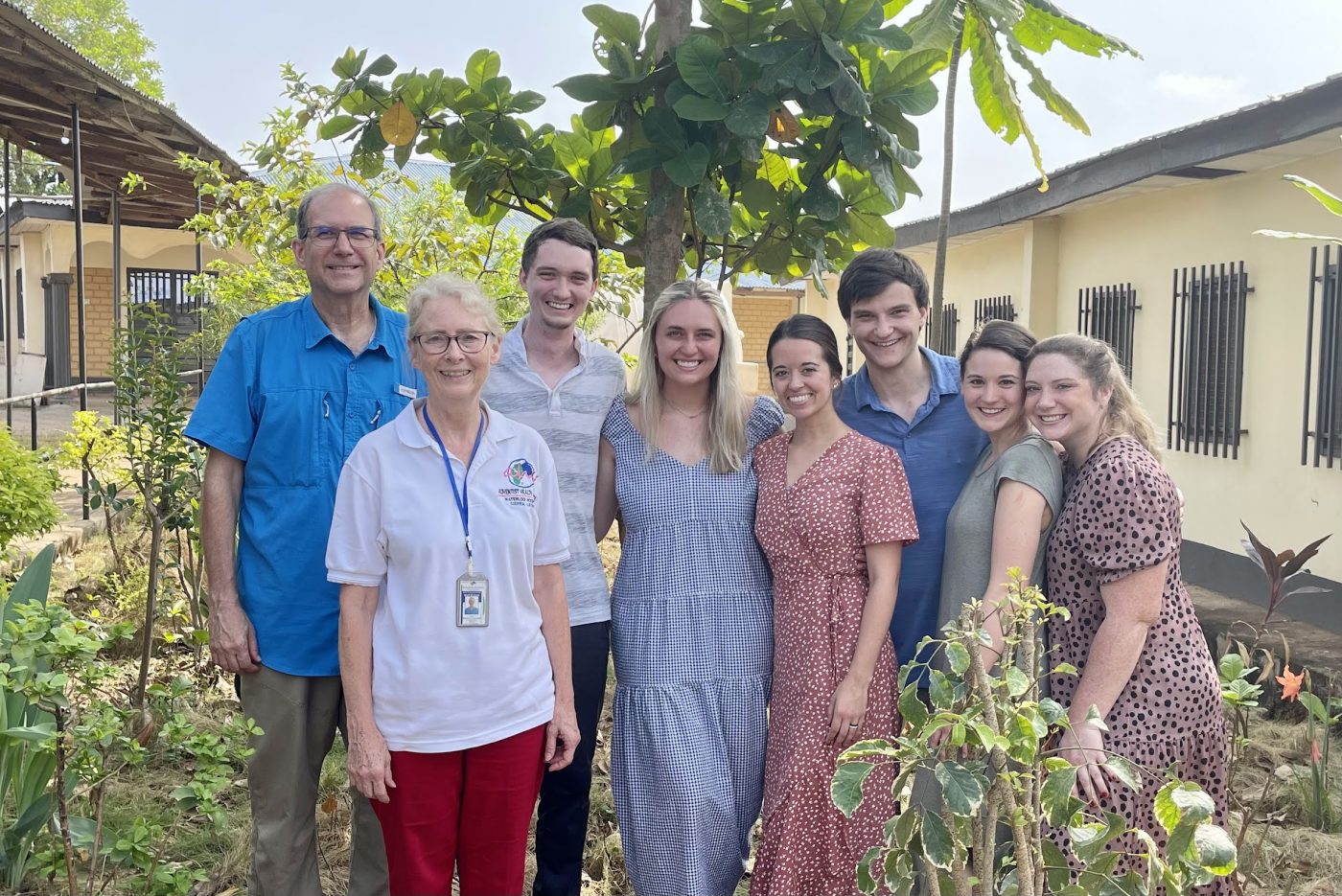
Six of Kettering College’s Physician Assistant (PA) students recently took advantage of an elective rotation that took place far beyond our nation’s borders. These students willingly paid thousands of dollars to help those in need in the impoverished country of Sierra Leone in West Africa.
Kettering College professor Dr. Scott Gardner has lived in Sierra Leone and had told his students about the work he did there at the hospital. They became interested when he announced Kettering College would be making another trip to assist the hospital there. These trips have been a long-standing tradition, but the COVID-19 pandemic put a stop to them for a few years.
“I felt God pushed me to do this trip. With COVID, there was so much uncertainty if we’d be able to go, but I just knew from God I would be going, and this was something God was sending me on to open my eyes to something else.”
-Cody McMillan, PA Student
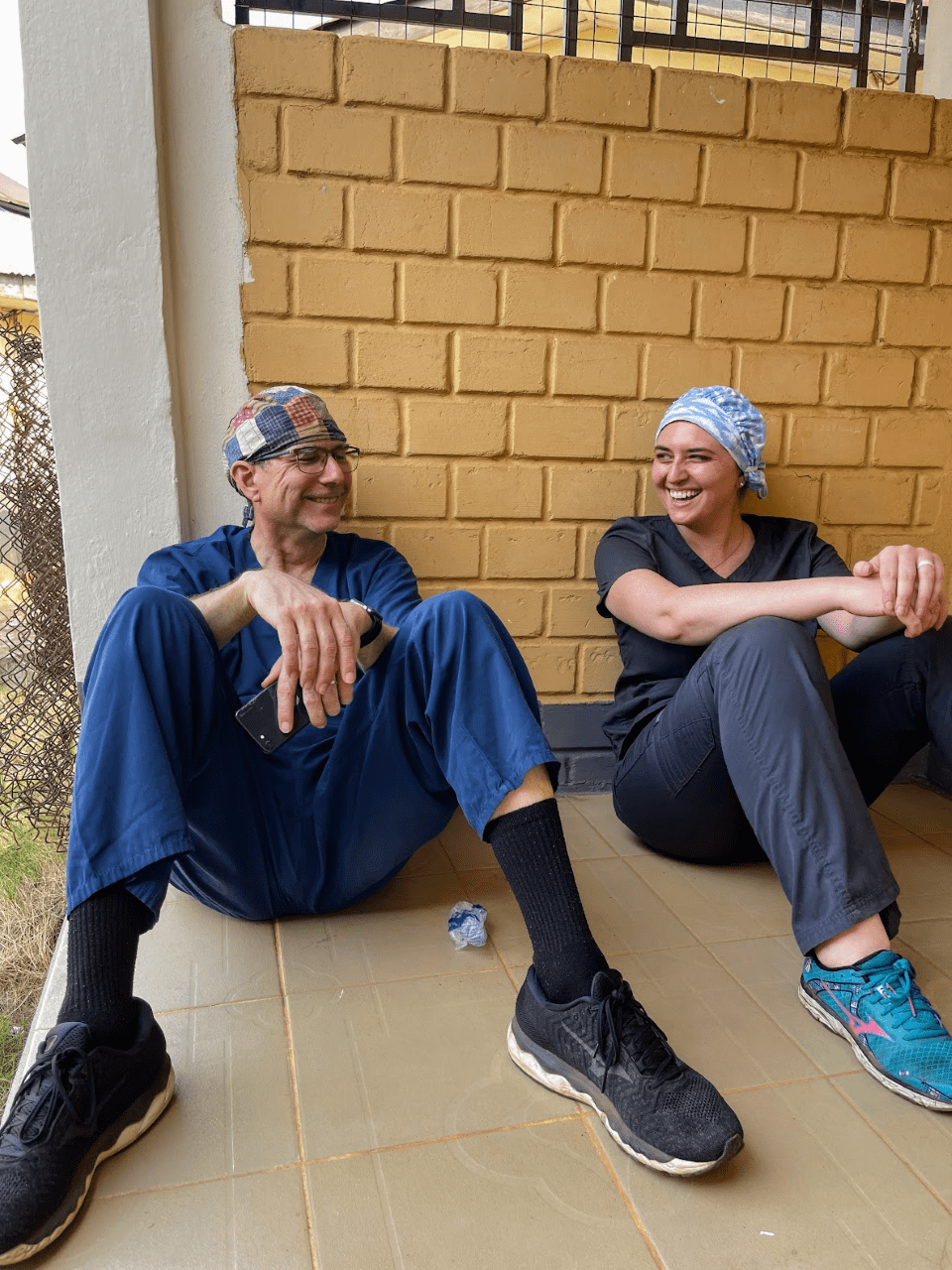
All the students’ eyes and hearts were certainly opened. Dr. Gardner notes students were exposed to the world on this trip. Even the poorest people in America are rich by Sierra Leone’s standards, and our students were immersed in this environment for over two weeks as they put their medical skills to work.
For 16 days, they stayed at the primitive hospital with no running water or air conditioning in often 100-degree heat with 90% humidity. Students went out at night to collect rainwater to fill their buckets to replenish the supply. Electricity was scarce and sleeping with mosquito nets was a necessity.
They served in various capacities at the hospital where staff is limited. They helped give out meds, admitted patients to the hospital, assisted with surgeries, and were on call at night. Essentially, whatever was needed, our students stepped up and did it, often completing tasks they had never done before back home.
Students conducted a mobile clinic by teaming up with other hospital employees and driving out to villages 30 minutes away. They would park their unit under a mango tree to serve people who had no access to healthcare. At no cost to the family, students treated countless children for malaria, worms, infections, rashes, and other acute illnesses that likely would have gone untreated due to a lack of transportation or other financial restrictions.


The mobile clinics gave the PA students a chance to show extra care to their patients and their families. They often played soccer, frisbee, and jumped rope with the village children, giving the mothers a chance to enjoy seeing their kids laugh and play.
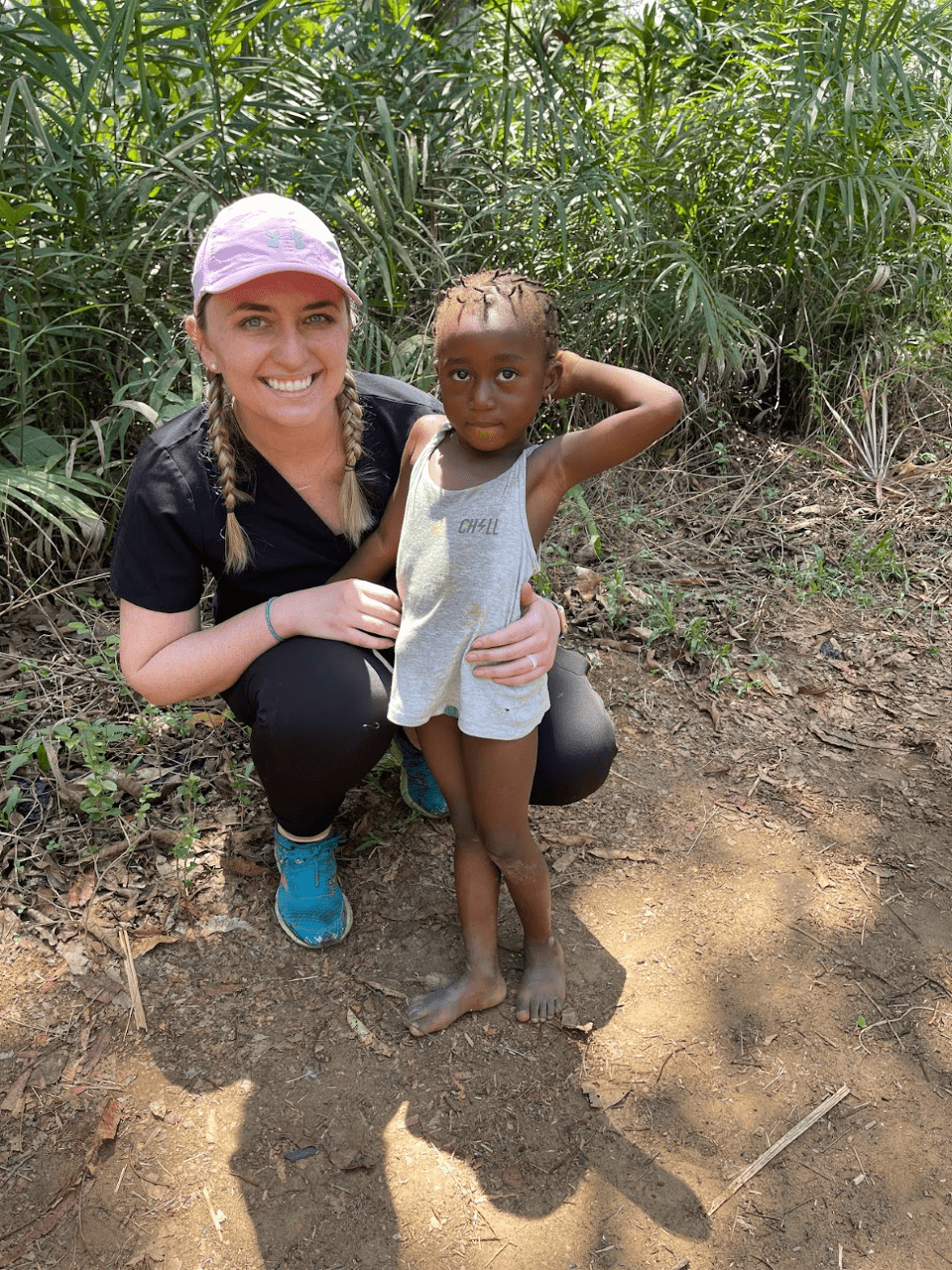
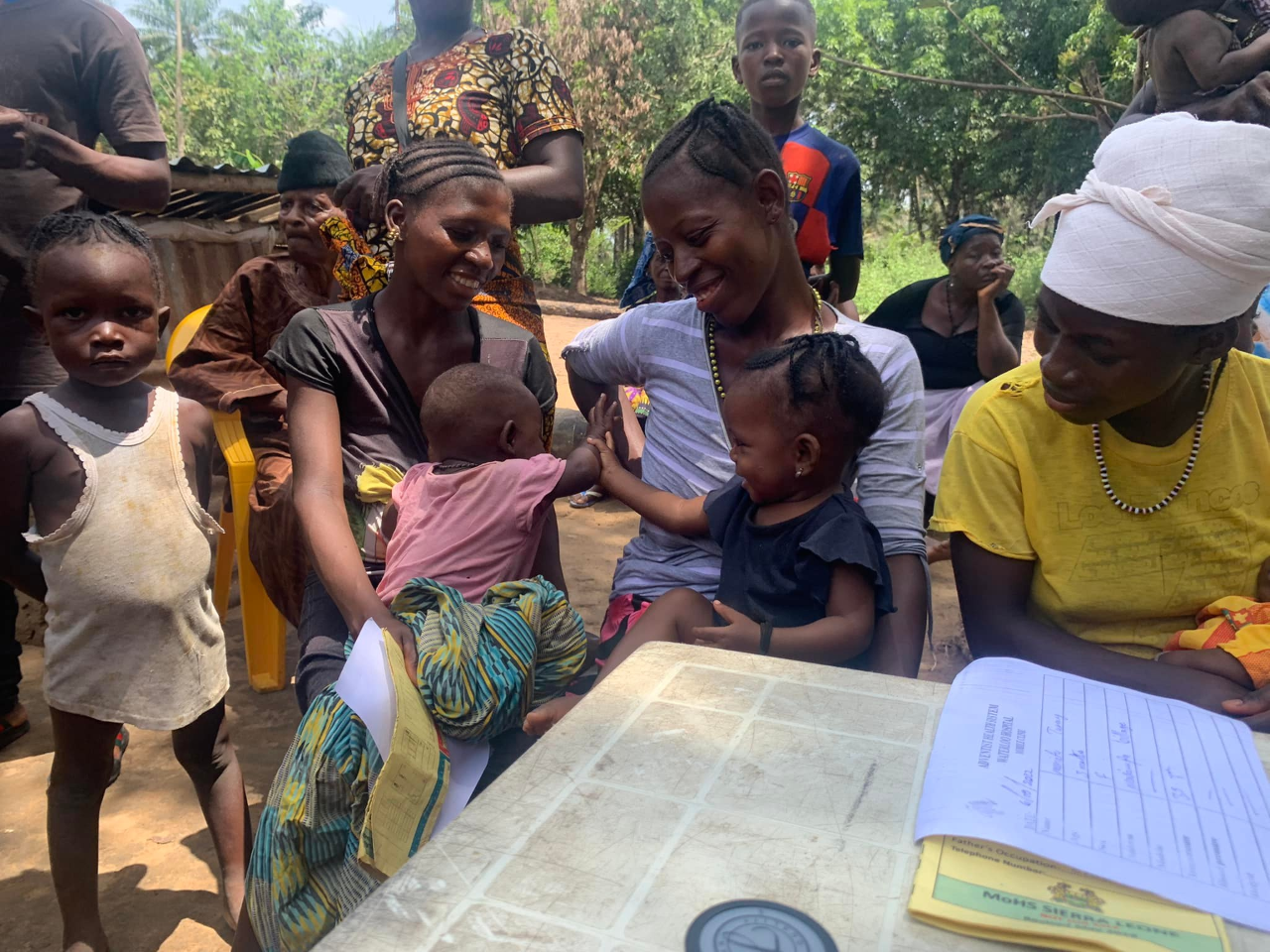
The harsh reality of not having adequate medical care in Sierra Leone became something the students felt the weight of as they strived to help but often could not. All students gave CPR to at least one child on the trip, and quickly had to brace themselves for witnessing difficult situations. In fact, Dr. Gardner says the students experienced more death on this trip than they ever have here in the States.
PA student Alexa Brouhard admitted there was sadness and frustration that came with serving in the hospital. She said, “While any loss is difficult, the constant loss we were subjected to was heartbreaking. In these moments, I felt like the breadth of my medical knowledge was working against me. I found it hard not to compare what the treatment would have been if we were treating these patients in America.”

“We did everything we could with what we had access to, but in those moments of defeat, I could not help but be angered by the disparity in resources.”
-Alexa Bouhard, PA Student
Students had a debrief session each night where they were able to give feedback to Dr. Gardner about what they had learned and witnessed that day. They often vocalized their sadness that these same conditions they were treating patients for were life-threatening, whereas in America they would be simply solved immediately. Each student wanted to do more for the people they were serving and had to wrestle with the reality that resources were limited.
Even amid sadness and frustration, students were quick to say there was joy, faith, and hope in Sierra Leone.
“They experienced the raw faith and spirituality of people. They understand now people are the same with the same fears, love, emotions, and personalities. They might look different and have a different culture, but our humanity ties us together.”
-Dr. Scott Gardner, MD
The students and other staff soon became quite attached to a 9-year-old orphan named Ibrahim. He was brought into the clinic one day with a hemoglobin level of 1.6, whereas in America 12 is the number we strive to maintain. He was lethargic and very near to death. The students rallied together and soon realized one of them, Cody McMillan, had the boy’s blood type and could donate his blood.
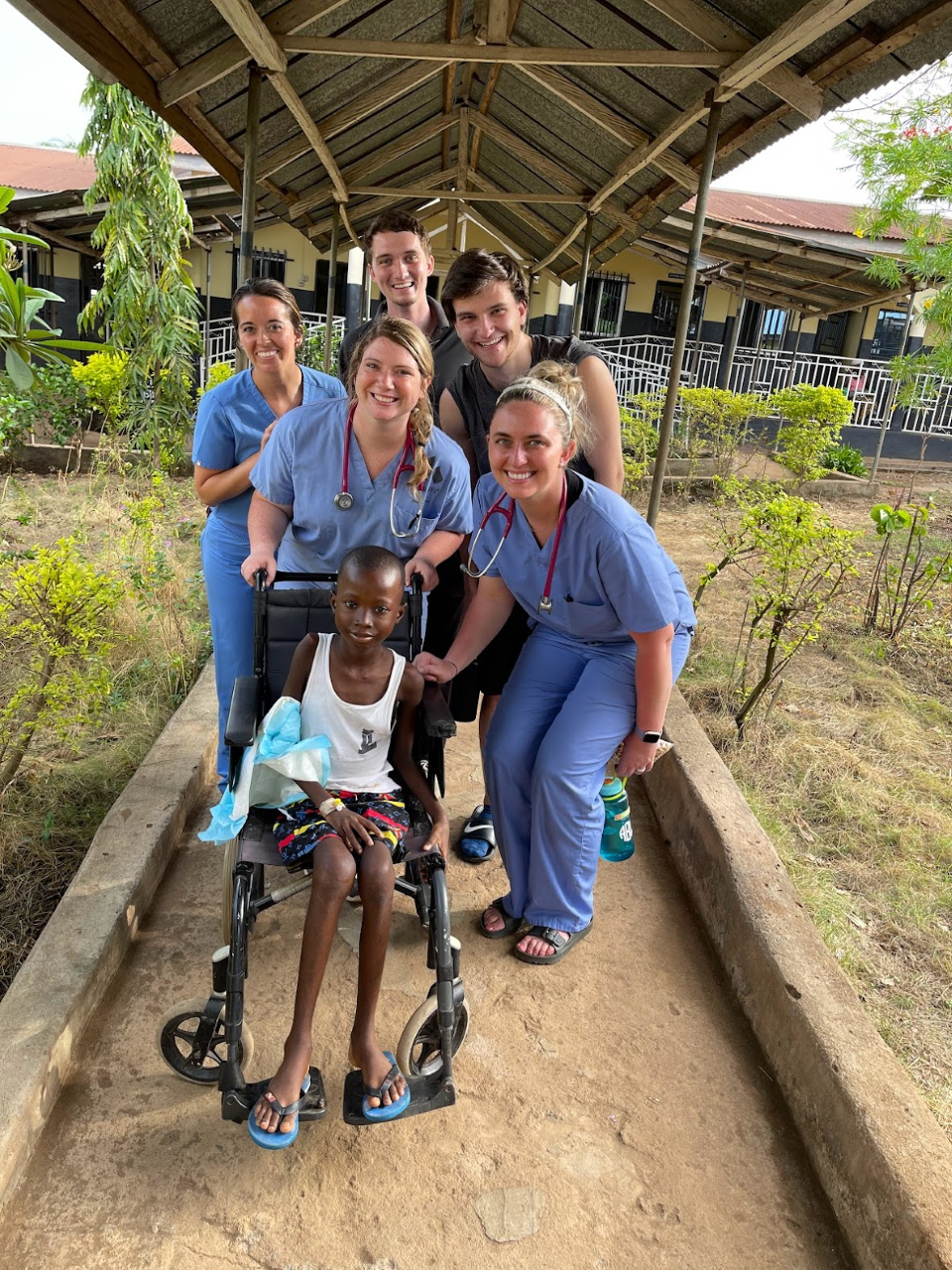
They jumped into action, going above and beyond any standard medical protocol, and delivered the life-saving blood to this child. As Ibrahim received Cody’s blood, the change was immediate. His hemoglobin count went up and energy and life returned to his face.
Cody is clear he does not want to sound like a hero from this experience. The tears in his eyes as he recounts the story are evidence of its power and hold on him.
“It was the most touching experience of my life. It was amazing that God put us at the right place at the right time…when we were surrounded by so much death, this child represented hope for us.”
-Cody McMillan, PA Student
Student Morgan Reagans developed a very close bond with the boy, taking him on long morning strolls in his wheelchair after the group’s daily worship. She keeps in contact with Ibrahim’s grandmother and is happy to report Ibrahim is doing very well.
Alexa Brouhard tells of the deep-rooted faith and love of the people she served. She tells the story of an 8-month-old patient she and a classmate lost after a lengthy attempt at resuscitation. The students and the child’s parents were devastated. In their culture, it is custom to have the deceased buried by sundown on the same day. Since they had an outstanding hospital bill, they were unable to take the body home until the dues were paid. A bystander witnessed this conversation and paid the bill in full without knowing the family.
A couple of hours later, the man who paid the bill received news that his own daughter would soon die from metastatic cancer. It became clear quickly this is a culture where everyone cares for each other with profound love, faith, and respect—no questions asked.
“In a region of the world where poverty is so prevalent and so damaging to society, acts of kindness and pure selflessness stand out more than anything. In this culture, the importance placed on material possessions takes a backburner. You are blessed and live a rich life if you have strong relationships with your family and friends.”
-Alexa Brouhard, PA Student
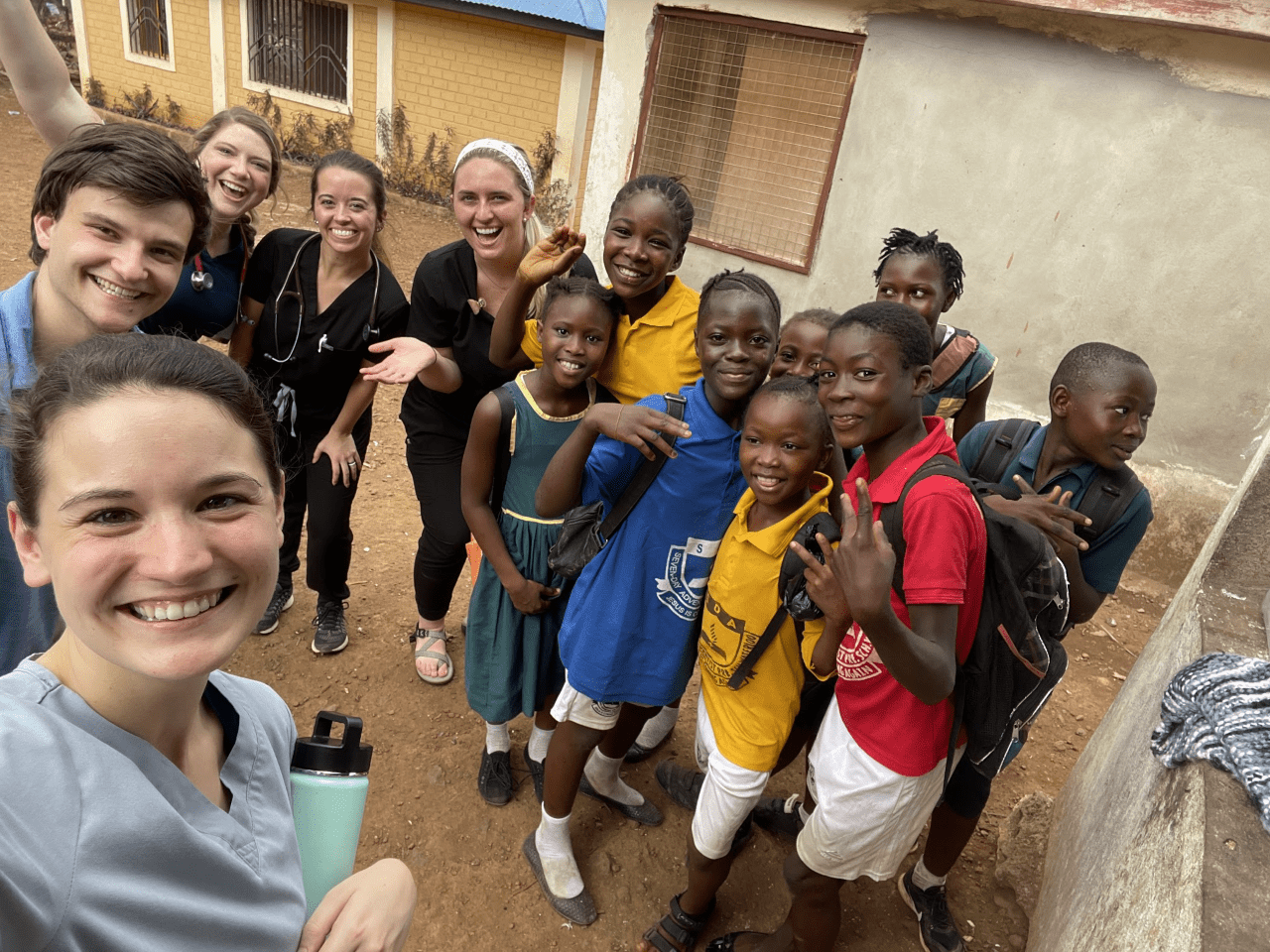
One might assume the most predominant emotion on this trip would be sadness for the people of Sierra Leone, but the students agree they came away from the trip feeling envious of the culture, noting the strength they saw was astounding.
Morgan Reagans echoed this sentiment, saying her intention was to go and help people, but what she realized a couple of days into the trip was that the people in Sierra Leone were making far more of an impact on her than she would ever be able to do for them through their tight-knit culture, strength, and deep sense of spirituality.
“I left the trip feeling immensely grateful for everything I have in the U.S. but also feeling quite jealous of pieces of their culture, because I think we as Americans could learn a lot from them and what they prioritize.”
-Morgan Reagans, PA Student
PA Student Paige Combs admits her time in Sierra Leone was not something she could have fully prepared herself for, and she is still figuring out how to articulate what she experienced to friends and family.
“People there are so grateful for small things and here in America we take daily luxuries for granted like running water, access to emergency care, and air conditioning.”
-Paige Combs, PA Student
When students were asked if they would go back, they all answered with a resounding, “Yes. Absolutely.” They would pay over $3,000 to go to a country to see suffering, serve in primitive, challenging conditions, and hold onto hope even during times of utter frustration and sadness? Yes, they would. These are truly the hearts of healthcare professionals, and we are so proud of these students for taking on this life-changing experience that will serve them well as they serve others.
Now that students have returned, Dr. Gardner notes they are feeling a “reverse culture shock,” meaning now that they see how others live, they are shocked at the excess in this country. This trip to West Africa has given students new eyes and hearts. They are future PAs who are now armed with even more empathy, understanding and love for their patients. Those qualities are something we can talk about in a classroom, but to experience them firsthand is something that will truly live on in these students as they move forward with the spirit of Sierra Leone nudging them on.
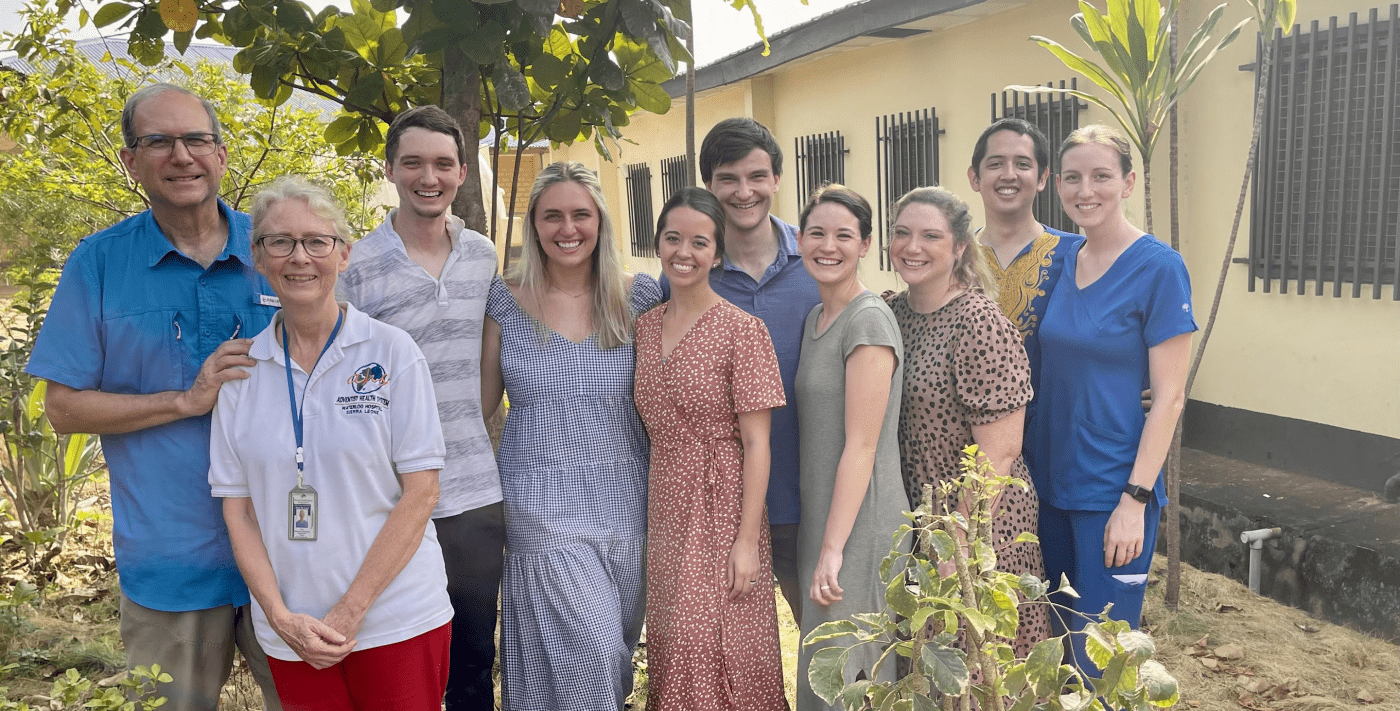
Dr. Scott Gardner, Bekki Gardner, Alex Simon, Alexa Brouhard, Alyssa Johnson, Cody McMillan, Paige Combs, Morgan Reagans, James Fernando, Rachel Fernando (The Fernandos were the missionaries currently living at the hospital)
About Kettering College
Kettering College is a fully accredited, coeducational college that specializes in health science education. A division of Kettering Health, the College is located on the Kettering Health Main campus in a suburb of Dayton, Ohio, and is chartered by the Seventh-day Adventist Church. Kettering College offers an Occupational Therapy Doctoral program, a Master of Physician Assistant, Bachelor and Associate of Science degrees, and certificate programs.